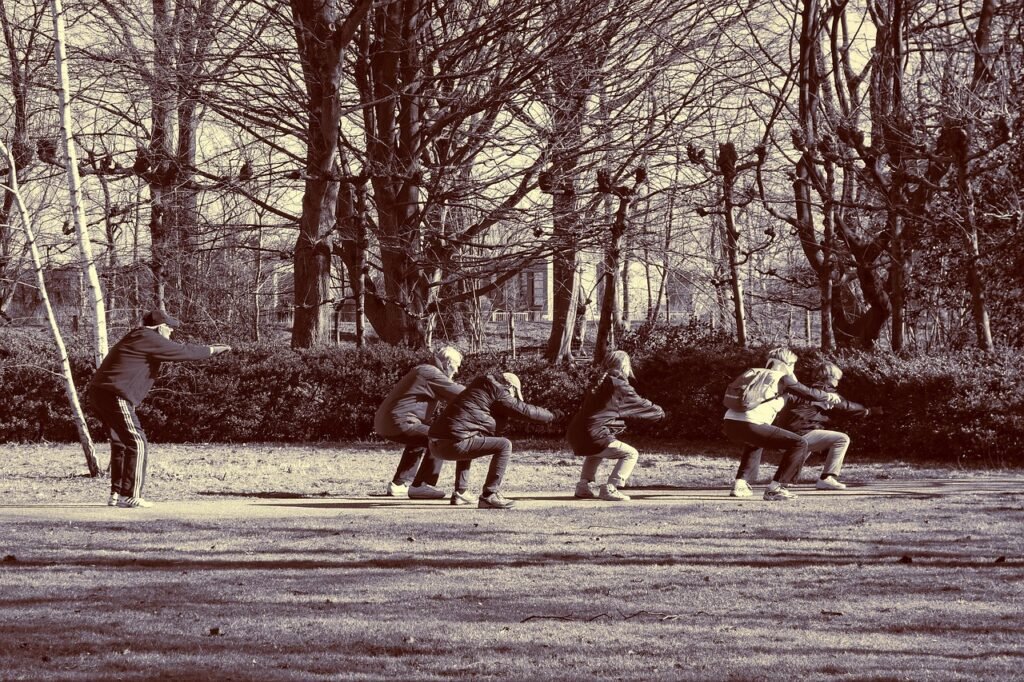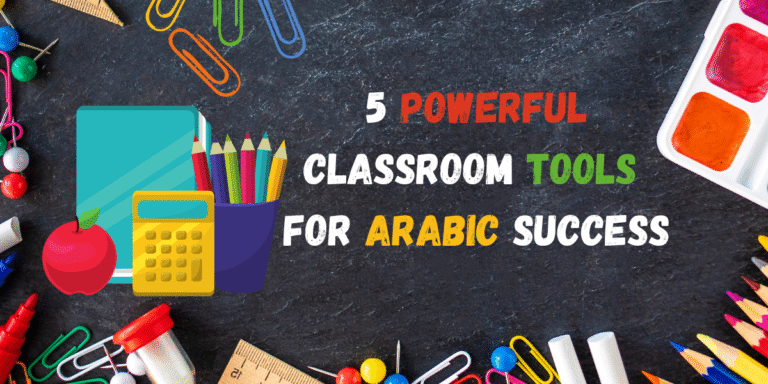Daily Routines in Arabic 2026
Learning a new language is more than memorizing vocabulary lists or repeating grammar rules. A language lives in the way people use it every day. One of the clearest ways to understand how Arabic works in real life is by looking at the simple routines that shape the daily rhythm of millions of speakers. When you learn how to describe your morning, explain your study habits, or talk about your work schedule in Arabic, you connect with the language at a practical and personal level.
Daily routines are a familiar topic. You wake up, get ready, eat, work, study, meet people, rest, and go to sleep. Talking about these steps in Arabic gives you ready-made sentences you can use in conversations with native speakers. More importantly, it helps you see how verbs, nouns, and expressions combine in real situations. Instead of learning words in isolation, you practice them in meaningful contexts that reflect daily life. This makes the learning process more natural and memorable.
Arabic has its own unique way of describing time and habits. For example, verbs change depending on who is doing the action. A student might say “I wake up early” using the first person form, while describing another person requires a different form of the verb. Daily routine topics allow you to see these changes clearly and use them without confusion. You also get to practice common time expressions like “in the morning,” “in the evening,” “at night,” and “every day.” These phrases are essential if you want to talk about schedules, habits, or even cultural practices.
For beginners, focusing on daily routines builds confidence. You don’t need to start with advanced grammar to express yourself. By learning a few verbs like wake up, eat, go, read, and sleep, you can already create many useful sentences. You can say what time you wake up, what you usually eat for breakfast, or what you do after work or school. This creates a foundation that makes more complex conversations easier later on.
For intermediate learners, daily routines open the door to richer details. You can add adverbs, describe the frequency of activities, or compare weekdays with weekends. You might explain the difference between what you do at home and what you do when traveling. You can even practice using the past tense to describe yesterday’s routine, or the future tense to talk about tomorrow. This flexibility shows how one simple theme can support continuous learning at different levels.
Studying daily routines also helps you notice cultural differences. In some Arab countries, the main meal happens at lunchtime rather than dinner. Work schedules may start earlier or later depending on the region. Prayer times also shape the flow of the day for many people. By learning how to describe these routines in Arabic, you gain not only language skills but also insight into cultural practices that influence daily life.
Learning how to describe daily routines in Arabic starts with mastering the essential words and verbs. These are the building blocks that allow you to create full sentences and talk about what you do every day. In this section, we will cover the most common verbs, nouns, and time expressions that you will use again and again when speaking about your schedule.

Key Verbs for Daily Routines
Arabic relies heavily on verbs to describe actions. Below is a list of verbs that appear constantly in conversations about routines. Each verb is shown in its basic form (the past tense root), but you will use them in the present tense most of the time when describing habits.
- اِسْتَيْقَظَ (istayqaẓa) – to wake up
- نَامَ (nāma) – to sleep
- غَسَلَ (ghasala) – to wash
- لَبِسَ (labisa) – to wear, to get dressed
- ذَهَبَ (dhahaba) – to go
- جَلَسَ (jalasa) – to sit
- أَكَلَ (akala) – to eat
- شَرِبَ (shariba) – to drink
- دَرَسَ (darasa) – to study
- عَمِلَ (ʿamila) – to work
- قَرَأَ (qaraʾa) – to read
- كَتَبَ (kataba) – to write
- رَجَعَ (rajaʿa) – to return, to come back
- لَعِبَ (laʿiba) – to play
- مَشَى (mashā) – to walk
- شَاهَدَ (shāhada) – to watch
- طَبَخَ (ṭabakha) – to cook
These verbs are enough to describe most parts of your day. For example, by combining “wake up,” “eat,” “go,” and “sleep,” you can already form a simple description of your daily routine.
Useful Nouns for Daily Life
To talk about your activities, you also need nouns for objects, meals, and times of the day.
- الصَّبَاح (aṣ-ṣabāḥ) – morning
- المَسَاء (al-masāʾ) – evening
- اللَّيْل (al-layl) – night
- الفَجْر (al-fajr) – dawn
- الوَاجِبَات (al-wājibāt) – homework
- المَكْتَب (al-maktab) – office or desk
- المَدْرَسَة (al-madrasa) – school
- البَيْت (al-bayt) – home
- السُّوق (as-sūq) – market
- الغَدَاء (al-ghadāʾ) – lunch
- الفُطُور (al-fuṭūr) – breakfast
- العَشَاء (al-ʿashāʾ) – dinner
By mixing nouns and verbs, you can form practical sentences like “I go to school in the morning” or “I eat dinner at night.”
Time Expressions
Routines are closely tied to time, so it is important to know how to describe when something happens.
- كُل يَوْم (kull yawm) – every day
- أَحْيَانًا (aḥyānan) – sometimes
- دَائِمًا (dāʾiman) – always
- نَادِرًا (nādiran) – rarely
- قَبْل (qabl) – before
- بَعْد (baʿd) – after
- فِي الصَّبَاح (fī aṣ-ṣabāḥ) – in the morning
- فِي المَسَاء (fī al-masāʾ) – in the evening
- فِي اللَّيْل (fī al-layl) – at night
These small words give shape to your sentences. You can say “I always wake up early” or “I sometimes drink coffee in the evening.”
Putting Words Together
Vocabulary on its own is not enough. You need to start combining these words into simple sentences. Here are some examples:
- أَسْتَيْقِظُ فِي الصَّبَاح (astayqiẓu fī aṣ-ṣabāḥ) – I wake up in the morning
- أَذْهَبُ إِلَى المَدْرَسَة كُل يَوْم (adhhabu ilā al-madrasa kull yawm) – I go to school every day
- أَكْتُبُ الوَاجِبَات بَعْد العَشَاء (aktubu al-wājibāt baʿd al-ʿashāʾ) – I write homework after dinner
- أَقْرَأُ الكِتَاب فِي المَسَاء (aqraʾu al-kitāb fī al-masāʾ) – I read the book in the evening
Notice how these examples combine verbs, nouns, and time expressions naturally. This is the best way to make vocabulary part of your active knowledge instead of leaving it as a memorized list.
Why This Vocabulary Matters
Daily routine words are not just for practice exercises. They are part of everyday conversations with native speakers. If you meet someone learning Arabic, the first questions they may ask are: “When do you usually wake up?” or “What do you do in the morning?” These are natural, easy conversation starters. By learning this vocabulary, you prepare yourself to interact, not just study.
This is why many Arabic courses begin with the topic of daily routines. It connects language to real life, motivates learners, and provides a clear path for using new words in communication. Once you feel comfortable with these words, you are ready to build longer sentences and even small stories about your day.
After learning the core vocabulary for daily activities, the next step is putting the words together to make full sentences. Building sentences is where you start to see how Arabic grammar works in practice. This section will guide you through simple structures, step by step, with examples you can use right away.
The Subject and Verb
Arabic sentences often begin with the verb, especially in daily conversation. This is called a “verb–subject–object” structure. For example:
- أَسْتَيْقِظُ فِي الصَّبَاح (astayqiẓu fī aṣ-ṣabāḥ) – I wake up in the morning.
- أَذْهَبُ إِلَى المَدْرَسَة (adhhabu ilā al-madrasa) – I go to school.
Here, the subject (I) is included inside the verb form, so you don’t need to say أنا (ana – I) every time.
Adding Objects
To make your sentences more detailed, you can add objects. An object is the thing the action is done to.
- أَشْرَبُ القَهْوَة فِي المَسَاء (ashrabu al-qahwa fī al-masāʾ) – I drink coffee in the evening.
- أَكْتُبُ الوَاجِبَات بَعْد العَشَاء (aktubu al-wājibāt baʿd al-ʿashāʾ) – I write homework after dinner.
Now the verb has something to act on, which makes your sentence more complete.
Time Expressions
Daily routines depend on time, so adding time expressions makes your speech natural. Place them either at the beginning or end of the sentence.
- كُل يَوْم أَذْهَبُ إِلَى العَمَل (kull yawm adhhabu ilā al-ʿamal) – Every day I go to work.
- أَذْهَبُ إِلَى السُّوق فِي المَسَاء (adhhabu ilā as-sūq fī al-masāʾ) – I go to the market in the evening.
This pattern helps you describe habits and routines clearly.
Using Frequency Words
To explain how often you do something, you can use words like always, sometimes, or rarely.
- دَائِمًا أَقْرَأُ قَبْل النَّوْم (dāʾiman aqraʾu qabl an-nawm) – I always read before sleeping.
- أَحْيَانًا أَذْهَبُ إِلَى الحَدِيقَة (aḥyānan adhhabu ilā al-ḥadīqa) – I sometimes go to the park.
- نَادِرًا أَشْرَبُ الشَّاي (nādiran ashrabu ash-shāy) – I rarely drink tea.
These small words make your sentences sound more realistic, since nobody does the same thing with the same timing every day.
Making Questions
Conversations are two-way. You should know how to ask questions about routines as well.
- مَتَى تَسْتَيْقِظُ؟ (matā tastayqiẓu?) – When do you wake up?
- مَاذَا تَأْكُلُ فِي الفُطُور؟ (mādhā taʾkulu fī al-fuṭūr?) – What do you eat for breakfast?
- هَلْ تَذْهَبُ إِلَى العَمَل كُل يَوْم؟ (hal tadhhabu ilā al-ʿamal kull yawm?) – Do you go to work every day?
By learning a few question patterns, you can start real conversations with Arabic speakers.
Connecting Ideas
Once you feel comfortable with single sentences, try connecting them with words like “and,” “then,” and “after.”
- أَسْتَيْقِظُ فِي السَّاعَة السَّابِعَة، ثُمَّ أَذْهَبُ إِلَى العَمَل (astayqiẓu fī as-sāʿa as-sābiʿa, thumma adhhabu ilā al-ʿamal) – I wake up at seven, then I go to work.
- أَذْهَبُ إِلَى المَدْرَسَة وَأَدْرُسُ العَرَبِيَّة (adhhabu ilā al-madrasa wa-adrusu al-ʿarabiyya) – I go to school and study Arabic.
These connectors make your speech flow naturally, instead of sounding like a list of separate sentences.
Practicing Your Own Routine
To make this practical, write down your own routine in Arabic using these steps:
- Start with the time you wake up.
- Add what you do in the morning.
- Describe your school or work schedule.
- Explain what you usually do in the evening.
- End with the time you go to bed.
By doing this, you create a personal script that you can practice and repeat. Over time, you will remember the words and patterns more easily because they are tied to your own life.
This stage is where you turn vocabulary into communication. Instead of memorizing lists, you practice expressing real activities. The more you use these sentences, the faster they become natural.
Once you know how to describe your current daily habits in Arabic, the next step is learning how to speak about what you did yesterday or what you plan to do tomorrow. Talking about the past and the future adds depth to your conversations and makes your Arabic more flexible.
Describing the Past
Arabic uses the past tense (الفعل الماضي) to describe completed actions. The verbs change depending on the subject, just like in the present tense. Here are some examples related to daily routines:
- اِسْتَيْقَظْتُ مُبَكِّرًا (istayqaẓtu mubakkiran) – I woke up early.
- ذَهَبْتُ إِلَى العَمَل فِي السَّاعَة التَّاسِعَة (dhahabtu ilā al-ʿamal fī as-sāʿa at-tāsiʿa) – I went to work at nine o’clock.
- قَرَأْتُ الكِتَاب فِي المَسَاء (qaraʾtu al-kitāb fī al-masāʾ) – I read the book in the evening.
- أَكَلْتُ الغَدَاء مَعَ أَصْدِقَائِي (akaltu al-ghadāʾ maʿa aṣdiqāʾī) – I ate lunch with my friends.
Using the past tense allows you to retell your day, which is an excellent way to practice verbs and time expressions.
Describing the Future
The future tense in Arabic is simple. You add the prefix سَـ (sa-) or the word سَوْفَ (sawfa) before the verb in the present tense. Both forms mean “will.”
- سَأَسْتَيْقِظُ فِي السَّاعَة السَّابِعَة (sa-astayqiẓu fī as-sāʿa as-sābiʿa) – I will wake up at seven o’clock.
- سَوْفَ أَذْهَبُ إِلَى المَدْرَسَة (sawfa adhhabu ilā al-madrasa) – I will go to school.
- سَأَشْرَبُ القَهْوَة فِي المَسَاء (sa-ashrabu al-qahwa fī al-masāʾ) – I will drink coffee in the evening.
- سَوْفَ أَكْتُبُ الوَاجِبَات بَعْد العَشَاء (sawfa aktubu al-wājibāt baʿd al-ʿashāʾ) – I will write the homework after dinner.
These structures make it easy to talk about your plans or describe your future routine.

Comparing Past, Present, and Future
To get comfortable, try practicing the same sentence in three forms.
- Present: أَذْهَبُ إِلَى العَمَل كُل يَوْم (adhhabu ilā al-ʿamal kull yawm) – I go to work every day.
- Past: ذَهَبْتُ إِلَى العَمَل أَمْسِ (dhahabtu ilā al-ʿamal amsi) – I went to work yesterday.
- Future: سَأَذْهَبُ إِلَى العَمَل غَدًا (sa-adhhabu ilā al-ʿamal ghadan) – I will go to work tomorrow.
By practicing this shift, you train yourself to move smoothly between different tenses without confusion.
Practice Exercise
Try writing three to five sentences about your day yesterday, and three to five sentences about your plans tomorrow. Use the verbs from Part 1 and the sentence structures from Part 2. For example:
- Yesterday I woke up late, ate breakfast quickly, and went to the market.
- Tomorrow I will wake up early, study Arabic, and visit a friend.
This practice will make your Arabic more flexible and ready for real conversations.
Talking about the past and future routines is essential for anyone who wants to speak Arabic naturally. It allows you to share experiences, make plans, and connect your learning to real life.
Language is always connected to culture. When you learn how to talk about daily routines in Arabic, it helps to understand how people in Arab countries organize their own days. This knowledge gives meaning to the words you use and helps you avoid mistakes that come from assuming every culture follows the same schedule.
Work and School Schedules
In many Arab countries, the official workweek is different from what you may know. The weekend is often Friday and Saturday, not Saturday and Sunday. Friday is a special day for prayer, so routines change to allow time for worship. Schools and offices usually finish earlier on Thursdays and may start again on Sunday.
Work and school often begin early in the morning, but in hot climates, schedules may adjust to avoid the midday heat. In some Gulf countries, offices close in the afternoon and reopen later in the day. This creates a rhythm that feels unusual to newcomers but makes sense in local conditions.
Meals and Food Timing
Meals are another major difference. In many Western countries, dinner is the main meal. In Arab cultures, lunch is often the heaviest meal of the day. Families gather for lunch, especially on weekends, while dinner might be lighter and served later in the evening.
Breakfast also varies. In Morocco, you may find bread, olive oil, and tea. In Egypt, a traditional breakfast could include beans (fūl) and bread. In the Gulf, dates and coffee often appear in the morning routine. Understanding these habits helps you connect vocabulary to real food culture.
Prayer and Spiritual Practice
For Muslims, the five daily prayers shape the flow of the day. Prayer times are set by the position of the sun, so they divide the day into specific intervals. This rhythm influences work, study, travel, and family life. For example, in many places shops and offices close briefly at prayer times, then reopen.
When you describe daily routines in Arabic, you may hear people include these spiritual activities alongside meals and work. Knowing this helps you understand how central faith is to many people’s schedules.
Social Life and Evening Activities
Social life often happens in the evening. In many Arab cities, people go out late at night, especially during summer when the weather is cooler. Cafés stay open, families gather, and markets stay busy. Describing routines in Arabic might include “going out in the evening” or “visiting relatives” as common activities.
Hospitality is also important. Visiting friends or receiving guests is a regular part of life. This explains why learners often hear verbs like زَارَ (zāra – to visit) or verbs for eating and drinking in social contexts.
Variations Across Regions
It is important to remember that the Arab world is diverse. Daily routines in Morocco are not the same as in Saudi Arabia. Work habits in Egypt differ from those in Lebanon. Climate, religion, and local customs all influence how the day is structured. Learning Arabic routines gives you a window into these differences, and it helps you adapt when speaking with people from different regions.
Why Culture Matters
If you only memorize words without context, your Arabic may sound correct but not natural. By learning the cultural background of routines, you gain a deeper sense of how to use phrases in real life. You also show respect for the people you are speaking to, since you understand the values and habits behind the language.
Daily routines are not just grammar exercises. They are a way of connecting language to the lived experiences of millions of Arabic speakers. When you practice this topic, you are also practicing cultural understanding.
Studying vocabulary and grammar is useful, but the real test of language learning is conversation. Dialogues help you see how words come together in natural speech. In this section, we will go through practical dialogues about daily routines in Arabic. Each dialogue is followed by a translation and short notes to explain important points.

Dialogue 1 – Morning Routine
A: مَتَى تَسْتَيْقِظُ كُل يَوْم؟
(matā tastayqiẓu kull yawm?)
When do you wake up every day?
B: أَسْتَيْقِظُ فِي السَّاعَة السَّابِعَة، ثُمَّ أَذْهَبُ إِلَى العَمَل.
(astayqiẓu fī as-sāʿa as-sābiʿa, thumma adhhabu ilā al-ʿamal)
I wake up at seven, then I go to work.
Note: The word ثُمَّ (thumma) means “then,” which connects actions smoothly.
Dialogue 2 – Meals and School
A: مَاذَا تَأْكُلُ فِي الفُطُور؟
(mādhā taʾkulu fī al-fuṭūr?)
What do you eat for breakfast?
B: آكُلُ خُبْزًا وَجُبْنًا، وَأَشْرَبُ الشَّاي.
(ākulu khubzan wa jubnan, wa ashrabu ash-shāy)
I eat bread and cheese, and I drink tea.
A: مَتَى تَذْهَبُ إِلَى المَدْرَسَة؟
(matā tadhhabu ilā al-madrasa?)
When do you go to school?
B: أَذْهَبُ فِي السَّاعَة الثَّامِنَة.
(adhhabu fī as-sāʿa ath-thāmina)
I go at eight o’clock.
Dialogue 3 – Evening Activities
A: مَاذَا تَفْعَلُ بَعْد العَمَل؟
(mādhā tafʿalu baʿd al-ʿamal?)
What do you do after work?
B: أَرْجِعُ إِلَى البَيْت، وَأَطْبُخُ العَشَاء.
(arjiʿu ilā al-bayt, wa aṭbukhu al-ʿashāʾ)
I return home, and I cook dinner.
A: هَلْ تُشَاهِدُ التِّلْفَاز فِي المَسَاء؟
(hal tushāhidu at-tilfāz fī al-masāʾ?)
Do you watch TV in the evening?
B: نَعَم، أُشَاهِدُ بَرَامِج أَخْبَارِيَّة.
(naʿam, ushāhidu barāmij akhbāriyya)
Yes, I watch news programs.
Dialogue 4 – Weekends
A: مَاذَا تَفْعَلُ فِي نِهَايَة الأُسْبُوع؟
(mādhā tafʿalu fī nihāyat al-usbūʿ?)
What do you do on the weekend?
B: أَزُورُ أَصْدِقَائِي وَأَلْعَبُ كُرَة القَدَم.
(azūru aṣdiqāʾī wa alʿabu kurat al-qadam)
I visit my friends and play football.
A: هَلْ تَذْهَبُ إِلَى السُّوق أَيْضًا؟
(hal tadhhabu ilā as-sūq ayḍan?)
Do you also go to the market?
B: نَعَم، أَشْتَرِي الخُضَر وَالفَوَاكِه.
(naʿam, ashtarī al-khuḍar wa al-fawākih)
Yes, I buy vegetables and fruits.
How to Practice Dialogues
- Read each dialogue out loud, focusing on pronunciation.
- Memorize short question-and-answer pairs first.
- Try to replace words with your own details. For example, change “bread and cheese” to “eggs and milk,” or replace “football” with another hobby.
- Practice with a partner if possible. Ask and answer naturally, even if you make mistakes.
Why Dialogues Matter
Dialogues mirror real-life interaction. They prepare you for conversations with native speakers and give you ready-to-use patterns. More importantly, they force you to listen, respond, and adapt, which are the real skills needed in communication.
Daily routine dialogues are not just practice; they are a bridge to fluency. By repeating them, you build confidence, speed, and accuracy.
Learning daily routines in Arabic is straightforward, but learners often make recurring mistakes. Recognizing these mistakes early helps you speak more accurately and confidently. In this section, we will highlight common errors and provide tips to avoid them.
Mistake 1 – Using the Wrong Verb Form
Arabic verbs change depending on the subject and tense. Many learners forget to match the verb with the person.
- Incorrect: أَذْهَبُ إِلَى المَدْرَسَة هو (adhhabu ilā al-madrasa huwa)
- Correct: يَذْهَبُ إِلَى المَدْرَسَة (yadhhabu ilā al-madrasa) – He goes to school
Tip: Focus on learning the present and past tense conjugations for all pronouns. Practice with daily routine verbs like wake up, eat, and study.
Mistake 2 – Confusing Time Expressions
Using time words incorrectly can make your sentence confusing. For example, placing “every day” in the wrong position changes the meaning.
- Incorrect: أَكْتُبُ كُل يَوْم الدَّرْس (aktubu kull yawm ad-dars)
- Correct: أَكْتُبُ الدَّرْس كُل يَوْم (aktubu ad-dars kull yawm) – I write the lesson every day
Tip: Time expressions usually come at the end of the sentence or directly after the verb for clarity.
Mistake 3 – Forgetting Prepositions
Prepositions in Arabic are essential, especially for time and place. Many learners omit them.
- Incorrect: أَذْهَبُ المدرسة (adhhabu al-madrasa)
- Correct: أَذْهَبُ إِلَى المَدْرَسَة (adhhabu ilā al-madrasa) – I go to school
- Incorrect: أَكْتُبُ الواجب بليل (aktubu al-wājib b-layl)
- Correct: أَكْتُبُ الوَاجِبَات فِي اللَّيْل (aktubu al-wājibāt fī al-layl) – I write homework at night
Tip: Learn prepositions with examples. Practice “في” (in/at), “إلى” (to), and “مع” (with) in sentences about routines.
Mistake 4 – Overusing “أنا” (I)
Beginners often repeat “أنا” unnecessarily because it feels natural in English. In Arabic, the verb form already indicates the subject.
- Incorrect: أنا أَأكُل الفطور (ana ākulu al-fuṭūr)
- Correct: أَكُل الفطور (ākulu al-fuṭūr) – I eat breakfast
Tip: Focus on verb endings and practice without pronouns. Only use “أنا” for emphasis.
Mistake 5 – Mixing Up Past and Future
Using the wrong tense is common when learners describe yesterday or tomorrow.
- Incorrect: أَذْهَبُ إِلَى المَدْرَسَة أَمْسِ (adhhabu ilā al-madrasa amsi)
- Correct: ذَهَبْتُ إِلَى المَدْرَسَة أَمْسِ (dhahabtu ilā al-madrasa amsi) – I went to school yesterday
- Incorrect: سَأَذْهَبُ إِلَى المَدْرَسَة أَمْسِ (sa-adhhabu ilā al-madrasa amsi)
- Correct: سَوْفَ أَذْهَبُ إِلَى المَدْرَسَة غَدًا (sawfa adhhabu ilā al-madrasa ghadan) – I will go to school tomorrow
Tip: Use keywords like أمس (yesterday) and غدًا (tomorrow) to guide your tense choice.
Mistake 6 – Ignoring Cultural Context
Some learners describe routines exactly as they do at home without considering local practices. For example, talking about dinner times or prayer may seem unusual if the cultural context differs.
Tip: Learn about local schedules, meal times, and prayer practices. This makes your sentences sound natural and culturally appropriate.
How to Practice
- Write your daily routine and check each verb, tense, and preposition.
- Speak out loud and compare with sample sentences from earlier parts.
- Record yourself and listen to see if the sequence of actions and times makes sense.
- Try exchanging routines with a language partner to spot mistakes you might miss alone.
By addressing these common mistakes early, you strengthen your ability to describe routines clearly. Your sentences become more fluent, accurate, and easier for native speakers to understand.
Practice is the key to mastering daily routines in Arabic. Writing and speaking exercises help you move from memorizing vocabulary to actually using the language in real life. In this section, you will find exercises designed for different levels of learners.
Exercise 1 – Writing Your Own Routine
Write a paragraph describing your daily routine in Arabic. Use the vocabulary from Part 1 and sentence structures from Part 2. Include:
- The time you wake up
- Morning activities (e.g., breakfast, getting ready)
- School or work schedule
- Afternoon activities
- Evening activities and bedtime
Example:
أَسْتَيْقِظُ فِي السَّاعَة السَّابِعَة. أَغْسِل وَجْهِي وَأَفْطُر. أَذْهَبُ إِلَى العَمَل فِي السَّاعَة الثَّامِنَة. أَرْجِعُ فِي المَسَاء وَأَطْبُخُ العَشَاء. أَقْرَأُ كِتَابًا قَبْل النَّوْم.
Exercise 2 – Writing About Past and Future
Practice describing what you did yesterday and what you plan to do tomorrow. Include:
- Past tense verbs for yesterday
- Future tense verbs using سَـ or سَوْفَ for tomorrow
Example:
أَمْسِ اِسْتَيْقَظْتُ مُبَكِّرًا وَأَكَلْتُ الفُطُور. ذَهَبْتُ إِلَى المَدْرَسَة وَدَرَسْتُ العَرَبِيَّة.
غَدًا سَأَسْتَيْقِظُ فِي السَّاعَة السَّابِعَة وَأَشْرَبُ الشَّاي. سَوْفَ أَذْهَبُ إِلَى المَدْرَسَة وَأَكْتُبُ الوَاجِبَات.
Exercise 3 – Speaking Practice with a Partner
- Take turns asking and answering questions about daily routines.
- Use the dialogues from Part 5 as a model.
- Try to add personal details, like specific times or favorite activities.
Sample questions:
- مَتَى تَسْتَيْقِظُ؟ (When do you wake up?)
- مَاذَا تَفْعَلُ فِي الصَّبَاح؟ (What do you do in the morning?)
- هَلْ تُشَاهِدُ التِّلْفَاز بَعْد العَمَل؟ (Do you watch TV after work?)
Exercise 4 – Sequencing Activities
Practice connecting actions using words like ثُمَّ (then), وَ (and), or بَعْدَ (after). Write sentences that describe your day in sequence.
Example:
أَسْتَيْقِظُ فِي الصَّبَاح، ثُمَّ أَغْسِل وَجْهِي وَأَفْطُر. بَعْدَ ذلك أَذْهَبُ إِلَى العَمَل وَأَدْرُسُ العَرَبِيَّة.
Exercise 5 – Recording Yourself
- Record yourself reading your daily routine aloud.
- Listen and check pronunciation, verb endings, and sentence flow.
- Repeat until your sentences sound natural and smooth.
Exercise 6 – Vocabulary Reinforcement
Create flashcards for verbs, nouns, and time expressions. Use them to:
- Make simple sentences aloud
- Ask yourself questions and answer in Arabic
- Test your recall of past, present, and future forms
Tips for Maximum Practice
- Focus on one part of your routine at a time, then expand.
- Mix written and spoken exercises to strengthen both skills.
- Use real-life situations to describe routines instead of memorized examples.
- Review mistakes from Part 6 and correct them in your exercises.
Practicing daily routines actively builds confidence. By writing, speaking, and repeating your routines, you create a strong foundation to expand your Arabic skills naturally.
Once you are comfortable with basic vocabulary, sentences, and dialogues, the next step is to make your Arabic richer and more natural. Advanced expressions allow you to talk about routines in detail, show nuances, and sound fluent.
Using Adverbs and Frequency Modifiers
Adverbs help describe how often or how intensely you do an activity.
- أَغْلَبَ الظَّنِّ (aghlab aẓ-ẓann) – usually
- بِشِدَّة (bi-shidda) – intensely, thoroughly
- بِانتِظام (bi-intizām) – regularly
- أَحْيَانًا (aḥyānan) – sometimes
Example sentences:
- أَدْرُسُ العَرَبِيَّة بِانتِظام كُل يَوْم (adrusu al-ʿarabiyya bi-intizām kull yawm) – I study Arabic regularly every day.
- أَغْلَبَ الظَّنِّ أَقْرَأُ قَبْل النَّوْم (aghlab aẓ-ẓann aqraʾu qabl an-nawm) – I usually read before sleeping.
Using Expressions for Habitual Actions
Arabic has phrases to emphasize habits and repeated actions.
- عادةً (ʿādatan) – usually, normally
- في الغالب (fī al-ghālib) – most of the time
- دائمًا ما (dāʾiman mā) – always, without fail
Example sentences:
- عادةً أَسْتَيْقِظُ مُبَكِّرًا (ʿādatan astayqiẓu mubakkiran) – I usually wake up early.
- في الغالب أَتَنَاوَلُ الفُطُور مَعَ العَائِلَة (fī al-ghālib atanāwalu al-fuṭūr maʿa al-ʿā’ila) – Most of the time, I have breakfast with my family.
Expressing Sequence and Cause
Advanced learners can combine clauses to show sequence, cause, and result using connectors.
- لِذَلِكَ (li-dhālika) – therefore
- حِينَئِذٍ (ḥīna’idhin) – at that time
- لِأَنَّ (li’anna) – because
Example sentences:
- أَسْتَيْقِظُ مُبَكِّرًا لِأَنَّ لِي دَرْسًا مُهِمًّا (astayqiẓu mubakkiran li’anna lī darsan muhimm) – I wake up early because I have an important lesson.
- أَذْهَبُ إِلَى المَدْرَسَة، ثُمَّ أَذْهَبُ إِلَى المَكْتَبَة لِأَنِّي أُرِيدُ الدِّرَاسَة (adhhabu ilā al-madrasa, thumma adhhabu ilā al-maktaba li’anni urīdu ad-dirāsa) – I go to school, then to the library because I want to study.
Expressing Preferences and Opinions
Talking about routines can also include expressing likes, dislikes, and opinions.
- أُفَضِّل (ufaddil) – I prefer
- أَحِبُّ (uḥibbu) – I like
- لا أُحِبُّ (lā uḥibbu) – I don’t like
Example sentences:
- أُفَضِّلُ أَنْ أَسْتَيْقِظَ مُبَكِّرًا وَأَقْرَأَ القِصَصَ (ufaddilu an astayqiẓa mubakkiran wa aqraʾa al-qiṣaṣ) – I prefer to wake up early and read stories.
- لا أُحِبُّ أَنْ أَسْهَرَ حَتَّى مُتَأَخِّرًا (lā uḥibbu an asharā ḥattā muta’akhkiran) – I don’t like staying up late.
Using Idiomatic Expressions
Some expressions are idiomatic but very common when describing daily routines.
- في غَمْضَةِ عَيْنٍ (fī ghamḍat ʿayn) – in the blink of an eye, very quickly
- كُل شَيْءٍ بِوَقْتِهِ (kull shayʾ bi-waqtihi) – everything in its time
- مِن وَقْتٍ لِوَقْتٍ (min waqtin li-waqtin) – from time to time
Example sentences:
- أُكْمِلُ وَاجِبَاتِي فِي غَمْضَةِ عَيْنٍ (ukmilu wājibātī fī ghamḍat ʿayn) – I finish my homework in the blink of an eye.
- أَقْرَأُ أَدَبًا مِن وَقْتٍ لِوَقْتٍ (aqraʾu adaban min waqtin li-waqtin) – I read literature from time to time.
Benefits of Advanced Expressions
- Your sentences become longer and more expressive
- You can describe your routines with details about frequency, preference, and cause
- Your Arabic sounds natural and closer to native speech
- You can adapt conversations to different contexts, like school, work, or social life
By practicing these advanced expressions, you go beyond simple routines. You can tell your day in a detailed, fluent, and engaging way, which is essential for real conversations and writing.
Ramdani Arabic Academy offers tools and lessons designed to help learners master daily routines in Arabic. By using these resources strategically, you can improve your vocabulary, sentence-building skills, and fluency.
1. Structured Lessons
The Academy provides step-by-step lessons covering verbs, nouns, and time expressions. Start with beginner lessons focused on daily routines, then gradually move to intermediate and advanced exercises. Following this structure ensures you learn vocabulary and grammar in a meaningful order.
- Focus first on verbs for waking up, eating, studying, and sleeping
- Practice time expressions and frequency words in context
- Use sentence-building exercises to form complete daily routine descriptions
2. Interactive Exercises
Ramdani Arabic Academy includes interactive exercises for writing, listening, and speaking. These exercises let you apply what you learn in practical scenarios.
- Complete quizzes that ask you to match verbs with activities
- Fill-in-the-blank exercises to practice time expressions and prepositions
- Speaking exercises to record your daily routine and compare it with model answers
3. Listening Practice
Listening to native speakers describing their routines helps you internalize natural pronunciation, intonation, and sentence structure.
- Listen to dialogues about morning, afternoon, and evening routines
- Repeat sentences aloud to practice pronunciation and fluency
- Compare your sentences to native examples to correct mistakes
4. Writing Exercises
Writing your own routines reinforces vocabulary and grammar. The Academy provides guided prompts to help you write about:
- Your typical day
- Yesterday’s activities
- Tomorrow’s plans
These prompts encourage consistency and make writing an active part of your learning.
5. Personalized Feedback
Ramdani Arabic Academy allows learners to receive feedback from instructors. This feedback is essential to:
- Correct common mistakes highlighted in Part 6
- Improve verb conjugations, prepositions, and sentence flow
- Receive suggestions for using advanced expressions naturally
6. Using Articles and Blogs
The Academy’s articles about Arabic culture, daily life, and learning strategies enhance your understanding of routines in real contexts. Reading these articles helps you:
- Learn cultural nuances like meal times and prayer schedules
- Understand differences between regions in the Arab world
- Connect language practice to real-life experiences
7. Creating a Daily Practice Plan
Consistency is key. Use the Academy resources daily to practice:
- Vocabulary drills for 10–15 minutes
- Listening to dialogues and repeating them
- Writing a short paragraph about your day
- Speaking aloud using advanced expressions
By integrating these exercises, you gradually move from basic sentences to fluent, natural descriptions of daily routines.

8. Benefits of Using the Academy
- Access to structured, culturally accurate content
- Practical exercises that connect learning to real life
- Support from instructors to correct mistakes and improve fluency
- Opportunities to practice listening, speaking, and writing every day
Ramdani Arabic Academy is not just a learning platform. It is a guide to using Arabic in daily life, helping you describe routines, interact naturally, and gain confidence in real-world conversations.
Ramdani Mohamed, the founder of Ramdani Arabic Academy, created this platform to help Arabic learners around the world connect with the language in a practical and meaningful way. Having studied language acquisition and teaching strategies, Ramdani understands that learning Arabic is most effective when it is tied to real-life activities. Daily routines are one of the most practical ways to start using Arabic immediately, which is why this article focuses on them in detail.
Why Daily Routines Matter
Daily routines are universal. Everyone wakes up, eats, works, studies, and sleeps. By describing these activities in Arabic, learners can start speaking about their own lives from day one. Ramdani believes that when learners connect vocabulary and grammar to their own daily experiences, retention and fluency improve dramatically.
At Ramdani Arabic Academy, lessons are designed to mirror real-life situations. Every exercise, dialogue, and article is created to encourage learners to use Arabic naturally, not just memorize words. By practicing daily routines, learners gain confidence to ask questions, share experiences, and interact with native speakers in everyday situations.
Personal Motivation
Ramdani Mohamed was motivated to create the Academy after noticing how many learners struggle with applying Arabic in daily life. Traditional methods often focus on grammar rules and isolated vocabulary, leaving learners unable to speak naturally about their own experiences. By combining language learning with cultural understanding, the Academy bridges this gap.
Ramdani’s goal is to empower learners to:
- Speak about themselves and their routines naturally
- Understand Arabic-speaking cultures through daily life
- Build confidence in conversations, both written and spoken
Encouragement for Learners
Learning daily routines is more than memorizing verbs and time expressions. It is the first step toward fluency. Ramdani encourages every learner to:
- Practice consistently every day
- Write and speak about their routines honestly and naturally
- Use mistakes as learning opportunities
- Explore cultural nuances to deepen understanding
Ramdani Arabic Academy provides all the tools and guidance learners need to achieve these goals. By combining structured lessons, interactive exercises, and cultural insights, the Academy makes mastering daily routines in Arabic accessible and effective.
Learning Arabic is a journey. Starting with your daily routines is a practical, achievable, and rewarding first step. With consistent practice and the right guidance, you can describe your life, understand others, and connect with the language in ways that go far beyond the classroom.







